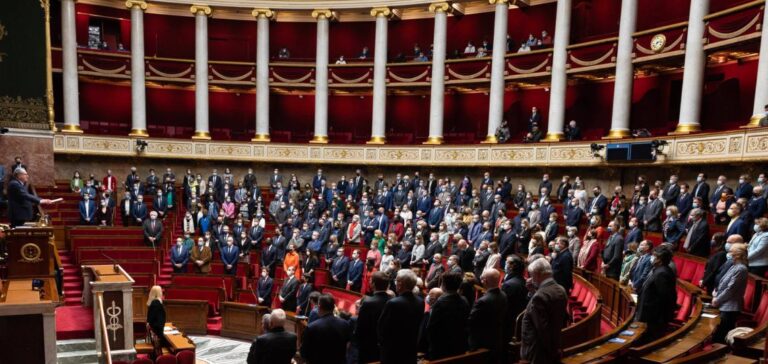More than a hundred deputies seized Tuesday the National Commission of the public debate (CNDP) to claim the holding of a debate on “the place of the nuclear power in the energy mix of tomorrow”, announced the deputies EELV at the initiative of this step.
While the CNDP will launch from Thursday a debate on the construction of six new nuclear reactors EPR 2, a campaign promise of Emmanuel Macron, and another general governmental consultation on energy began on October 20, the deputies consider these steps as “insufficient”.
In total, 105 deputies from five political groups – EELV, LFI, PS, Modem (one deputy, Hubert Ott) and Liot (one deputy, Paul Molac) – have seized the CNDP, but others could be added, said the EELV deputy of the Drôme Marie Pochon, who initiated the referral, with Julien Bayou. “We find that the spaces dedicated to a public debate on energy issues are largely insufficient,” she explained.
This seizure of the CNDP by deputies is “unprecedented”, noted Julien Bayou. It aims to demand that a “real debate can be held on the energy issue”, and not only on the decision, by the head of state alone, to build six new EPRs.
He regretted the “current scheme”, where “a candidate says in a speech in Belfort, ‘we’re going to make six more EPRs’, in the end the Assembly will vote on it (…), and then there will be a public consultation where people can decide whether the chimneys will be off-white or cement grey”.
“We propose to have a debate very early” of the programming law on energy and climate (LPEC), which must determine before July 1, 2023 the priorities for action of the national energy policy, to “return the power of decision to the people,” he explained.
For Marie Pochon, the governmental consultation on energy launched on October 20 “does not offer sufficient guarantees of neutrality and independence”.
The referral of the CNDP “is salutary, the government should not be afraid of the people,” also stressed the insoumise Clemence Guetté, while recognizing that all the signatory groups did not have the same approach to the energy mix needed.
“In the end, we may not vote the same on nuclear power,” also acknowledged the socialist Dominique Potier, but “we believe in science to enlighten the debates,” citing “the abundance of production” of state agencies, institutes and NGOs.






















